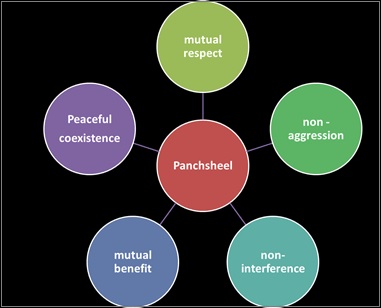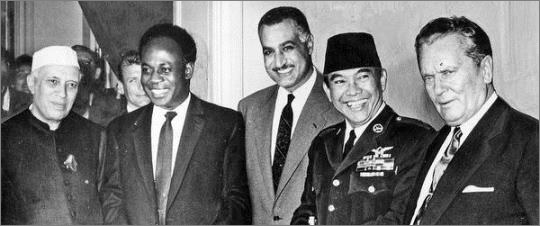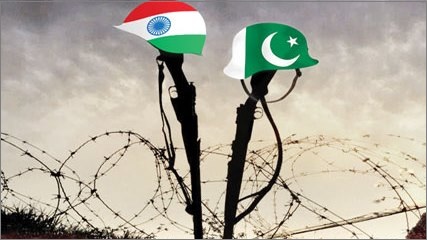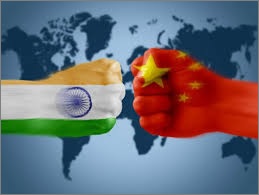India’s Bilateral Relations
by Devender
0 1490
Bilateral relations and foreign policies are used by every country in the world. It serves as a key system to maintain relations with foreign countries meanwhile defending and strengthing themselves.
India’s Bilateral Relations
India also used its foreign policies to defend and strengthen India’s independence. It also helps India to develop self-reliance, self-confidence, and pride of the masses at the same time putting an effort towards World peace and anti-colonialism.
India carried out its foreign policies in such a way that it will respect the sovereignty of all other nations and maintain security with peace. It is also stated in Article 51 of the constitution: "Promotion of international peace and security".

Nehru played his own finance minister while he was Prime minister. Hence, he played a crucial role in formulating and implementing India's foreign policy from 1947 to 1964. The foreign policy's major function was to promote and protect Indian economic interests. The three major objectives of Nehru’s foreign policy were:
- To preserve hard-earned sovereignty
- To protect the territorial integrity
- To promote rapid economic development
- mutual respect for each other’s territorial integrity and sovereignty
- nonaggression
- non-interference in each other’s internal affairs
- equality and mutual benefit
- Peaceful co-existence
- Countries like India, Egypt, Indonesia did not join Baghdad Pact, Manila Treaty, SEATO & CENTO, which were the major military blocs
- It showed their struggle to retain and strengthen their independence from colonialism and imperialism
- India also advocated for a non-alignment policy by getting rid of cold war tensions and contributing human resources to the UN peacekeeping operations
- It also enabled the non-alignment bloc to keep the domination of the western bloc in check
- Hence, Non-alignment advanced the process of democratization of international relations
- Pakistan withdrew its forces from J&K
- authority of the Srinagar administration to be restored over the whole state
- Despite the Kashmir conflict, governments of both countries worked together to restore the abducted women to their original families
- The conflict over water sharing was solved in 1960 with the world Bank’s mediation by signing the India-Pakistan Indus Water Treaty between Nehru and General Ayub Khan
- 1965 India Pakistan War:
- Shastri ordered Indian troops to launch counter offense from the Punjab border to ease the situation in J&K
- Finally, the war was won by India and it came to an end with UN intervention
- Both countries signed the Tashkent Agreement in January 1966 where Shastri from India & General Ayub Khan from Pak took part
- It happened due to the mediation of the Soviet Union<
- 1971 India Pakistan War:
- To end this menace once and for all, the people of Eastern Pak started their struggle for independence and liberation from Pak rule
- India had a large number of refugees from Eastern Pak
- Pakistan considered it as a conspiracy of India to break Pakistan
- USA and China came to support Western Pak and helped them to end the people's movement
- To ensure safety from attacks of China and USA, India signed a 20-year Treaty of Peace and Friendship with the Soviet Union
- Even after many diplomatic deliberations, no result came out and full-scale war broke out in 1971 on both the eastern and western fronts
- Indian Army got local support in the form of "Mukti Bahini"
- They made rapid progress, compelling the Pakistani troops to surrender in 10 days only
- Kargil War:
- The Indian army had a suspicion that there is Pak's hand behind it
- Indian forces immediately started retaliating to such proxy war which is known as the "Kargil conflict"
- This conflict had the world's attention because both countries acquired Nuclear weapons by 1998 and could be used by either side
- However, it didn't happen and Indian troops regained their points
- 1962 India China War:
- Chinese troops captured 13 posts in Galwan Valley in the Western sector
- They threatened the Chushul airstrip in Ladakh
- India was not prepared for such an attack so they sought help from the USA and Britain
- However, the Chinese themselves declared a unilateral withdrawal but this incident soared the relationship between the two countries
- Impact of 1962 War:
- This war also induced a sense of national humiliation
- It created a dent in India's image at home and abroad
- The relations between the two nations remained cold until 1976 but after that, it resumed
- The Foreign minister AB Vajpayee of that time became the first top-level leader who visited China in 1979.
Nehru focused on 5 principles which were called the "Panchsheel" of Indian Foreign Policy. These Panchsheels were:
Reason for Non-alignment Policy
The world got divided into two blocs after the Second World war where one bloc was led by the USA and the other one by the Soviet Union. However, Nehru believed that poor countries would lose everything by joining any military bloc as these blocs would only work in self-interests. The leaders of NAM wanted to expand their area of peace instead of hostility.

The non-alignment policy was accepted by many nations and enabled them to make their voice heard in the UN.
Relations with Pakistan
After what happened in Kashmir after the partition between Pakistan and India, India filed a complaint in the UN against Pakistan for their illegal actions but didn't get justice as Western powers backed Pakistan.
So, India agreed to UN resolution on ceasefire despite its advantageous position. India also agreed to a plebiscite in Kashmir under two conditions which were:
The first condition was never fulfilled and hence, no plebiscite was held. Soon after this, J&K participated in India’s general elections, and then, the talk of plebiscite had no purpose.
In 1965, Pakistan launched armed attacks in the Rann of Kutch area of Gujarat and later launched a bigger offensive in J&K thinking that the local population would support the cause of Pakistan but they were wrong.
Despite the fact that India won this war, it put a lot of economic burden on India.

The General elections of Pakistan caused an internal crisis and soon it turned violent. In Western Pakistan, the ruling party of Zulfikar Bhutto emerged as the winner while in the Eastern part, Rahman’s Awani League won but the western Pakistan power was not ready to accept the democratic verdict. The Pak army arrested Rahman and conducted brutal terror activities and suppressed their voices instead of accepting their verdict and demands.
Bangladesh emerged as an Independent country and India declared a unilateral Ceasefire. Later, Indira Gandhi and Zulfikar Bhutto signed the Shimla Agreement of 1972 to bring back peace between the two nations.
After the defeat of 1971, the Pak army never tried to fight directly with the Indian army, they started the proxy war where they send terrorists trained by their secret agencies to create havoc and panic in J & K and India. The same thing happened in 1999, these so-called Mujahideens occupied several points on the Indian side of LOC in the Mashkoh, Dras, Kaksar, Batalik.
There was a huge controversy claiming that the Pak PM was not made aware of such conflict and later, the Pak army chief General Parvez Musharraf took over as its President.
Relations with China
India adopted the policy of friendship with China. In fact, India became the first country to recognize the new People’s Republic of China on January 01, 1950, moreover, Nehru also supported the representation of China in UNSC. Nehru and Chinese Premier Zhou Enlai also signed the Panchsheel treaty and recognized China's right over the disputed territory of Tibet and approved its control over it.

In October 1962, a massive attack was launched by the Chinese army, they were able to overrun Indian posts in the Eastern sector in NEFA (now Arunachal) and the Indian Army commander fled from there without resistance which opened the doors for the Chinese to attack India.
The Indian resources for economic development and the Third five-year plan were diverted for defense. India had to face a very difficult situation. Nehru also faced his first & last confidence motion in August 1963 and was criticized for his wrong assessment of Chinese intentions and not preparing the Army for such attacks.

Share:







Comments
Waiting for your comments